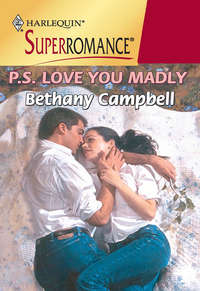
Полная версия
Home To Texas
Lynn pointed out a handsome older couple with a young girl. “This is my father, J.T.,” Lynn said fondly. “And our stepmother and little sister. Daddy just retired. The three of them are in Paris now. Believe me, it’s very hard to imagine Daddy in Paris.”
She smiled, then sighed. “This is Tyler again. And his wife and two girls. They’ve gone out to Napa Valley for the year. They’re trying to see if they can handle two wineries—one here, one there.”
Lynn shook her head pensively. “And Cal’s in Mexico, selling his brewery. Everybody’s so…far away. It’s the first time they’ve all been away at once. I feel—abandoned.”
Tara bit her inner lip, knowing how it was to be truly abandoned.
Lynn’s expressed grew abashed. “I shouldn’t complain, heaven knows,” she murmured. “And I’m not really the only one left. Daddy’s cousin’s here. He’s a cousin, but he and Daddy were as close as brothers, so he’s almost like an uncle. Big Bret. We called him that because Mama also had a cousin Bret, and he was short, so he was Little Bret. Big Bret’s managing the Double C for Daddy. I’ve got a picture here—somewhere.”
How different it must feel, thought Tara, to have roots deep and strong in one place. Her family had moved eleven times while she was growing up.
“Here he is,” Lynn said, smoothing the page flat. “Big Bret. Looks like Daddy, doesn’t he?”
Tara studied the man. In his fifties, he gazed into the camera grimly. He did not look like the sort who changed his mind or gave his affections easily.
Yet if affection didn’t show in his unsmiling face, it showed in how his arms draped the shoulders of two younger men. Although they stood close to him, their expressions were as joyless as his.
“His sons,” Tara said, knowing it must be so.
“Yes.” Lynn’s voice was quiet. “This isn’t the greatest picture. It was taken just a little while after my aunt Maggie’s funeral. She really was the glue that held that family together. Without her, it’s become a bit undone.”
She squared her shoulders, forced a smile. “You’ll meet him soon, Big Bret. He’s your neighbor, and he’ll be a good one. This son—”
She indicated a handsome, boyish young man with angel-blue eyes. “This is Jonah, the youngest. I’d kill for eyelashes like that. He came to the Double C to finish his dissertation. A sweetheart. But all he thinks of is books and cows.”
Jonah, Tara mused, was so handsome he was perilously close to being pretty. He was not as interesting as his brooding dark-eyed brother.
“The other one,” Lynn said, “is Lang. He’ll be here soon. He’s kind of at loose ends now. He’s getting a divorce.”
She must have seen Tara’s face tighten in control. She quickly changed the subject. “There’s another brother. Grady. But you won’t meet him.”
Tara looked at Lynn with mild curiosity. “Why not?”
Lynn’s smile was indulgent. “Grady’s the one with the Gypsy in his soul. We’re afraid he’ll never settle down. I wish he would. Of the three brothers, he was always the most…”
She paused, bemused.
“Most what?” prompted Tara.
“The most fun to be with,” Lynn said thoughtfully. “The hardest working. Maybe—it’s a hard call—the smartest. The easiest to talk to. The hardest to understand.”
She shrugged, patted the album cover and smiled. “Whatever. Ready for lunch?”
BRET MCKINNEY WAS GOING about his business in all innocence when he was ambushed by a godlessly seductive nightie.
All he’d done was open a closet door in an unused bedroom of the Double C. There were other clothes in the closet, but it was the nightgown that sneak-attacked him.
Then Bret realized that there was a crowd of nightgowns and negligees. They hung tauntingly empty on their satin hangers, and they reminded him of how long it had been since he’d been with a woman.
Bret slammed the closet door shut in panicky haste. He felt guilty, like an inadvertent Peeping Tom. Whose intimate, gauzy stuff was this? Did it belong to his cousin’s wife? One of his nephews’ wives?
For the first time in years, Bret felt the stirring of a long dormant sensuality. He’d thought such feelings were dead, and he hadn’t mourned them. He meant to be faithful to his wife’s memory. He was a man of iron discipline, and he’d made up his mind.
It disturbed him that his body had rebelled against his mind’s dictate. He stepped to the window and stared out at the miles of rolling Texas range.
Bret still missed his wife, Maggie, dead two years now. He had severed himself from his job in Idaho in part because he could no longer endure the ranch house so painfully haunted by memories of her.
Bret’s plan had been to come back to Texas to learn to live alone and like it. Fate, however, had decreed that solitude was not an option. First, his youngest son, Jonah, had announced he’d join him.
Bret hadn’t minded this so much. Jonah was a good man with cattle; he was serious and he was quiet. He helped work the ranch by day and wrote his doctoral dissertation at night. He was no trouble and made no demands. It was almost the same as being alone.
But now Bret’s middle son was on his way to the Double C, tangled up in money and marriage problems. At thirty-one, Lang was too damned young to be having a midlife crisis, but that wasn’t stopping him.
Bret shook his head in frustration. Lang was due tomorrow, which was why Bret was checking out the room. It was why he’d opened the closet and been bushwhacked by the nighties.
Well, the things would have to be moved, that was all. Lang didn’t need a closet full of female finery to taunt him.
Bret left the room and strode down the hall to the kitchen, from which floated an aroma of Tex-Mex beef and spices. He would ask Millie Gilligan, the Double C’s housekeeper, to move all that frippery somewhere else, anywhere else.
He found her in the kitchen, stirring a pot of chili. She was an odd little gnome of a woman, restless and given to strange pronouncements.
Mrs. Gilligan was almost as new to the ranch as Bret was, and J.T. had cautioned him about her. “She’s the best we could find. She’s a great cook and a fine housekeeper. But, dammit, I think she might be a witch.”
She indeed might be, thought Bret, for she would stir her pots, dropping in pinches of this and sprinkles of that, and produce foods that seemed too delectable to be created by a mere mortal.
“Mrs. Gilligan,” Bret said gruffly, “I need your help when you’ve got a minute. My son will be using the back bedroom. There are some women’s…things…in the closet. Could you move them someplace else?”
Mrs. Gilligan squinted at him wisely. She had eyes as green as bottle glass and wildly curling gray hair. “I’ll see to it,” she croaked. “We’ll make him comfortable. Even the finest phoenix needs its nest.”
Whatever the hell that means, Bret thought. “Yes. Well. Thanks.”
He paused. “Mrs. Gilligan, about my son—I don’t know how long he’ll stay. Looking after an extra person…you’re sure this is all right?”
“The more the merrier, or so the wind blows. I’ll tend to the closet.” She left, her gait somewhere between a scuttle and a scamper.
Bret sighed harshly and stared after her. How old was she? Fifty? Sixty? Eighty? He couldn’t tell. At least he doubted if anyone would gossip he was sleeping with his housekeeper. Wiry little Millie Gilligan seemed as sexless as a pipe cleaner.
Jonah came in the back door, quietly, of course. More leanly built than his father, he also stood taller, nearly six foot three. He had dark-lashed blue eyes like Maggie’s, intelligent and sensitive. Sometimes looking into those eyes ripped Bret with pangs of loss. She’s still here, he’d think. In him.
Jonah gave Bret his serious smile. “Hi.”
“Where’ve you been all afternoon?” Bret asked.
Jonah tipped his brown Stetson back to an incongruously rakish angle. “Riding fence,” he murmured.
Bret nodded in approval. Riding fence was a common stockman’s job, but Jonah never minded humble work. No part of ranching was beneath his interest. He was going to make somebody a hell of a manager.
“Anything new?” This was generally a useless question to put to Jonah, because he always muttered, “Not really.”
But today a troubled look crept into Jonah’s eyes. “New neighbor’s moving in.”
Bret frowned. As if he didn’t have enough to do. “The woman?”
Jonah shifted uneasily. “Yeah. Slattery told me.” Slattery was the foreman.
“Well,” Bret said impatiently, “what did he say?”
“She’s here, that’s all,” Jonah said. He shrugged out of his denim jacket and hung it on a peg beside the door. He went to the refrigerator, took out the milk jug and poured himself a full glass.
“We should pay her a call,” Bret muttered, not looking forward to it. “Cal asked us to look in on her, make her feel at home.”
“You go,” Jonah said, then drank his milk the way some men chug beer.
Bret gave a sigh of frustration. Jonah went out of his way to avoid women.
Bret would go alone. He wanted to honor his nephew’s wishes. He knew the woman was the sister of one of the partners, but nothing more.
The only clue he’d had was Cal’s request to be friendly to her. “Help her if you can. She’s had a tough time.”
Bret had been too discreet to ask what kind of tough time, and Cal had been too discreet to say. Well, maybe Bret would saddle up, ride over and get the job out of the way. He was not by nature a sociable man, and with Lang boomeranging back on him, he felt less sociable than usual.
“Might as well do it and be done with it. Maybe I’ll saddle up that big bay gelding—” Bret began.
Jonah’s blue eyes narrowed. “Somebody’s coming up the drive.”
“It can’t be Lang?” Bret said and shook his head dubiously. “Too soon.”
Lang had said he couldn’t make it to Crystal Creek before tomorrow evening.
“No sir,” Jonah said, still staring at the driveway. Something like real joy glimmered in his eyes. “It’s Grady.”
Bret felt a stab of displeasure. It can’t be him. He wouldn’t have the guts…
But hiking up the driveway came a man in faded jeans, a blue work shirt and an open denim vest, lined with sheepskin. He wore a black Stetson pulled down over his eyes. He carried a scuffed duffel bag and walked like somebody who’d hiked a long way. Yet he somehow still managed a swagger.
Bret would know it anywhere, that air of lazy swash-buckling, that easy strut. His face went rigid as he watched the too-familiar figure approach the house.
Wide across the chest and shoulders, the man was a solid six feet tall. Although the day was chill, he wore no outer covering but the vest. His shirt was grease-stained, his black hat was dusty and he needed a shave. Still, he sauntered up to the back porch like a prince.
It’s him, all right. Grady.
With a shriveling sensation in his stomach, Bret looked on his eldest son for the first time in two years. He forgot the new neighbor. He forgot any promise to Cal. He even forgot Lang. All he could see was Grady, mounting the stairs like trouble itself getting ready to cross the threshold.
Lord in heaven, Bret thought with sorrow and bitterness, just what have I done to deserve this?
He had come to Crystal Creek to be alone. But now, as if directed by malignant forces, all three of his sons were descending on him. He had welcomed Jonah. He was determined to be hospitable to Lang. But what ill wind had driven Grady to his door—the only one of his sons who was truly charming—and truly worthless?
CHAPTER TWO
TIME AND WEATHER HAD CARVED the country around Crystal Creek into an uneven land of great hills and valleys. Some of these hills were massive enough to be called mountains, but most were low and rolling.
In some places, great sweeps of rock covered the earth, like a flow of pale, hardened lava. Soil was thin. Only what was strong could survive here.
Yet the landscape had stark beauty. Even in mid-November, the scattered oaks and elms fluttered golden leaves, and the sumac and soapwood bushes flared up from the ground like scarlet torches.
But most of the trees were the scraggly, twisted ones that Lynn said were mesquite and their branches were nearly bare. They looked tough enough to suck nourishment straight from stone.
Ahead, the flashing red of Lynn’s taillights signaled that she was turning from the highway to a dirt road. Tara followed. The road led up and was so badly rutted that her truck rattled and swayed. The way grew steeper and rougher, jolting her bones.
Then, suddenly, the road leveled off, and the two trucks were halfway up a hill big enough, to Tara’s mind, to qualify as a mountain.
And there it was—their house.
She had seen pictures, but she was not prepared for the impact of the real thing. It was, she thought, magnificent. Magnificent yet sad, because it had been both neglected and abused. But she had come to change all that.
The house was a long one-story sweep of limestone that glimmered so brightly in the sun it seemed almost white. It angled into a wide V shape so it could command views of the valley beneath it and the tall hills rambling into the distance in the west.
It had once had decks and sun porches, but they’d been torn off, leaving bare patches of concrete and raw slashes on the face of the stones. Concrete blocks, stacked unevenly, formed three jerry-built steps to the back door.
An enclosed walkway attached the house to a triple garage. A vandal with a can of red spray paint had scrawled graffiti on both stone and wood. Tara bit her lip in resentment, already feeling protective toward the house.
“What do those words say?” Del ask, squinting at them in curiosity.
“Nothing,” she said. “Foolishness.”
Among the obscenities and insults, one message stood out: Fabian Go Home!!! Brian Fabian was the man who’d recently owned the property. It was he who’d had the porches torn down and most of the outbuildings razed. Gavin had told her the outline of the story, but not the details.
Lynn parked in the graveled driveway, and Tara pulled in behind her, pebbles rattling under her tires. Both women got out, and Tara unfastened Del from his seat. “Is this our new house?” he asked in a small voice.
“Yes,” Tara said. “And it’s going to be a very nice house.”
He stared uncertainly at the ruined porches. “It’s broke.”
“Yes. But we’ll fix it.”
She went to the back of the truck and unlocked the door of the kennel box. Lono bounded out, sniffed the ground with enthusiasm and lifted his leg at a cactus. He was clearly pleased with the surroundings.
Del was not. He frowned in worry. “Why’d somebody write on our garage?”
“Sometimes people do bad things. I’ll paint over it.”
He didn’t seem reassured. He put his thumb into his mouth, something he did when he was tired or anxious, and she could tell he was both. For once she didn’t tell him not to suck his thumb. Instead she picked him up, and he leaned on her shoulder, yawning in exhaustion.
Lynn nodded ruefully at the defaced garage doors. “Sorry about the graffiti. Sam was going to paint over it last Sunday, but we had an emergency. All three dogs met a skunk. Yuck.”
“It’s all right,” Tara said. “I’ll take care of it. You’ve done more than enough for us.”
“You may not feel so charitable when you see your decor.” Lynn rolled her eyes. “It’s only a mix of cast-offs and garage-sale bargains.”
Tara patted Del’s back and smiled. “It’ll be fine.”
She’d sold most of the furniture she’d had in California. She didn’t want the memories.
But the few good pieces she’d kept were coming, and their books, kitchen things, odds and ends. The man at the moving company said it was such a small lot, he’d have to squeeze it onto a truck headed that way with other loads, other stops. In the meantime, their possessions were in storage and might not arrive for weeks.
Tara didn’t mind. She’d lived in nearly bare houses before. She’d told Del it would be like camping out. He’d thought it sounded like fun—then.
Her horse and Del’s pony, their saddles and tack, would be brought by a man who moved horses for his living, Garth Gardner. Tara had known him for years and trusted him implicitly. But he, too, had a full schedule, and the horses were not due to arrive for almost a month.
When Lynn learned all this, she’d insisted on furnishing the house temporarily, even if the furnishings were few and haphazard.
“You’re going to feel like you’re living in a thrift store.” She gave a sigh. “Not even a good thrift store.”
She tunneled into the back pocket of her jeans and brought out a jingling brass ring. “Well, are you ready? Here they are, the keys to the castle.”
“I’m ready.” Tara took them, and they felt as weighty as her responsibility to her son. And to her brother.
AT THE DOUBLE C, Grady half limped up the stairs of the back porch.
He’d walked a long way and had picked up a stone bruise.
But he forgot the pain as he reached the top stair and his eyes caught the familiar vista of his uncle’s rolling land. J.T.’s spread looked good to him, mighty good.
The hills loosed a throng of memories that tried to force themselves into Grady’s mind. He blocked them expertly, as if they were gate crashers trying to storm an inner place he’d long fought to keep private.
Grady didn’t like to think much about either the distant past or the far future. He’d tried to live like a bird in flight, soaring in the present moment—but it had been harder to do of late. And he had to admit this particular present moment wasn’t so good, pride-wise.
Suck it up, he told himself. His father wouldn’t be happy to see him, but he’d take him in. Somebody had said that, right? Home is where they have to take you in.
So he raised his fist and knocked at the door. He gazed at the countryside from the top of the porch. And he remembered in spite of himself.
How many years since he’d chased Lynn McKinney up these very stairs, brandishing a garter snake at her? And she’d stopped on the top step, wheeled around and bloodied his nose—for scaring the snake. God, he’d been fond of J.T. and his wife and three kids. He’d thought the Hill Country would be home forever.
Don’t think of that. Don’t think of those days.
He started to knock again, but the door swung open. His father stood there, staring at him like he was a freshly delivered bad surprise. He supposed he was.
“Hi, Dad,” he said. A smile sprang to his lips because in his heart he was glad to see the old man, even if the feeling wasn’t mutual.
He hadn’t set eyes on his father for two years, not since the funeral. They’d had words then. They’d had few since. Grady phoned once in a while, but the old man never had much to say. Well, two years was a long time, and Grady had never been one to hold a grudge.
As for the old man, although he looked perplexed and displeased, he didn’t actually look old. He looked a lot better than he had at the funeral, where he’d been worn and ashen as a zombie. He looked strong again, like his old self.
So Grady nodded in approval and said, “You’re looking good.” He meant it.
His father’s dark eyes looked him up and down. They had a spark of their old fire. “To what do we owe this honor?”
Grady cocked his hat back. “I heard you were in Crystal Creek. I was passing through. I was going to stop and see you.” He grinned. “But my truck stopped about eight miles before I did.”
“Oh, hell,” his father said and swung the screen door open with a sort of stoic resignation. “Come on in.”
Grady entered the kitchen, lugging his duffel bag. The scent of spicy beef hit him like a whiff from heaven. “Lord, that smells fine,” he said. “Am I invited for supper?”
“I suppose,” Bret said in the same weary tone.
“Good to see you again,” Grady said and offered his hand. Bret took it and initiated a contest of who could squeeze the hardest. Grady let him win, dropped his duffel bag to the floor and turned to Jonah, who stood by the window.
For a second Grady’s heart took a strange, flying vault. Looking into Jonah’s eyes was like plunging backward in time and staring into their mother’s eyes. Nostalgia pierced him like an arrow through the chest.
“Little brother,” he said with genuine affection and embraced Jonah. Good Lord, the kid didn’t look like a kid anymore; his even features had lost their last trace of boyishness.
Jonah accepted the embrace awkwardly. Like their father, he was embarrassed by emotional displays. But unlike their father, he was not judgmental. Once you were in the circle of Jonah’s affection, the devil himself couldn’t pry you loose.
Jonah mumbled, “Good to see you.”
Grady disengaged himself and punched his brother’s shoulder affably. He faced his father again. “Okay if I spend a couple nights? I don’t know how long my truck’s gonna be out of commission.”
“I suppose.” Bret’s mouth was grim. “Where you heading this time?”
“A spread down in Florida,” Grady said. “Via New Orleans.”
“What’s in New Orleans?”
“That’s what I aim to see,” Grady said, keeping his real reason to himself. He gave his brother’s shoulder another punch. “You want to come, kid? Those French Quarter gals would love you.”
Jonah’s handsome face darkened in a blush, but he smiled.
“Jonah’s got a job here,” Bret said emphatically. “A steady job. And his dissertation to finish.”
“Dissertation.” Grady eyed Jonah with playful pride. “A doctor in the family. How’s it goin’?”
“Okay.” The same little smile stayed, playing at the corner of Jonah’s mouth. He seemed truly pleased to see Grady.
Bret wished he could feel the same easy pleasure. But his emotions were rent in two as he studied his two sons, the youngest and the eldest.
He wondered how he had gone so right with one, so wrong with the other. There was Jonah, as dependable as gravity, marked for certain success. And there, on the other hand, was Grady.
Grady wasn’t as tall as Jonah, and his good looks were more rugged. His hair was almost black, his skin was tawny, and his eyes, like Bret’s own, were as dark as strong coffee. When he flashed that killer smile of his, weak women melted. Hell, even strong ones melted.
And Grady liked to melt them. He was used to it. He had charm, and Bret believed it was his undoing. Everything had always come easy to him, so he had never had to apply himself to anything.
Grady was in his prime—thirty-five years old—and he had not accomplished one blasted thing in his life. The fates had given him every gift. He was smart—his test scores in school had proved it. But he’d dropped out of school when he was seventeen and hit the road.
Look at him, Bret thought, fighting down his disappointment. His son’s jeans were faded and dusty. His boots needed a shine. His shirt had a black smear down one sleeve. But the hat, as usual, was tipped to a cocky angle. That hat told the world, I don’t give a damn. I never have. I never will.
Bret stared at his firstborn, thinking, so much potential; so little accomplished. It had broken Maggie’s heart, though she would never admit it. “He’ll settle down someday,” she’d always say as if she could believe it.
Grady had not even made it home in time to see Maggie before she died. Oh, he had his excuses, of course, like always, but not being at Maggie’s deathbed was a lapse Bret could not forgive.
After the funeral, Bret had rebuked him bitterly, but his son wouldn’t bow and accept the blame he so justly deserved. When he’d left, Bret had been secretly glad to see him go.
Now he was back. Acting—and this was Grady’s special gift—as if nothing had happened. Oh, he could charm the pants off a duck if he tried. He was even making Jonah talkative.
“Yeah. Lang’s coming home. He should be here by tomorrow night,” Jonah said.
“No kidding?” Grady grinned. “I’ll be danged. Perfect timing. It’ll be old home week. Is he bringing Susie?”










